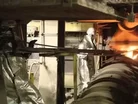Are low-margin businesses the new trend for mining giants?

Struggling with financial pressures, the world’s largest mining companies are losing the ego and exploring new revenue sources such as low-margin businesses, encroaching one a segment traditionally done by smaller companies.
According to Bloomberg, for the first time ever, Rio Tinto has started to refine other companies’ copper ore, while Brazil’s Vale has begun mixing minerals to make custom supplies for buyers.
“Everybody is trying to find ways to squeeze out whatever they can,” said Rick de los Reyes, who helps manage $1.5 billion invested in metals and mining at T. Rowe Price. “Everybody is fighting to stay alive.”
• Related content: Rio Tinto aims to cut costs by $1 billion but how?
Commodity prices continue to be a bust in 2015 as iron ore has fallen 22 percent and copper is down 19 percent. Coal has fallen roughly 10 percent so far this year and nickel is down 31 percent.
At Rio Tinto’s smelting facility in Utah, the company has started providing services to other producers, which are paying Rio Tinto a fee to heat up copper ore.
“It is vital that we remain focused on reducing our costs, increasing our productivity and ensuring that we derive the maximum value from our operations,” said Jean Sébastien Jacques, chief executive of Rio Tinto’s copper and coal group.
• Related content: [INFOGRAPHIC] Careers in mining: How to become a Metallurgist
And while low-margin businesses like refining seem natural for large mining companies like Rio Tinto and Vale, the strategy is layered in risk with razor-thin margins. According to some analysts, these downstream activities expose a bigger problem.
“It is probably not the best odds that it will work out real well or they would have been in that business in the first place,” said Michael Ball, portfolio manager with Weatherstone Capital Management, which oversees $675 million. The efforts “speak to the fact that companies believe they’ve got a longer-term issue on their hands.”
However, mining companies may have no other choice.
“The producers can’t just sit on their hands and say they can’t do deals like that,” saidPeter Bradley, Javelin’s chief executive and a former commodities trader at Goldman Sachs. “Otherwise, their industry is going to go away.”
Stay connected! Follow us on Twitter and like us on Facebook
- Who is Rio Tinto’s New Chief Executive Officer Simon Trott?Operations
- Rio Tinto to Acquire Arcadium Lithium for $6.7bnSupply Chain & Operations
- Rio Tinto, BHP & Glencore 'Feeling the Pinch on Copper'Supply Chain & Operations
- Rio Tinto Brings Simandou Guinea Iron Ore Saga to EndOperations



